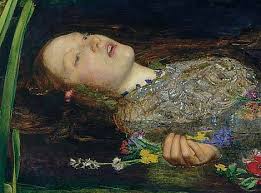
I got rhythm.
So has everybody. It’s built into us. We’re tuned to the rhythm of light and dark, the beating of our hearts, the in-and-out of our breathing.So it’s no surprise that rhythm is a crucial tool in the poet’s toolbox. I use that simile quite deliberately, because writing a poem is making something just as much as someone making a chair, or a carving, or a painting. In fact the early Scots poets were called “ Makars” for that very reason.
OK – what does this miracle tool do, then ? It gives shape to the poem. By and large prose is a continual stream of thought, structured into sentences and paragraphs. But poetry needs rhythm to mark out a territory, indicate a change of mood.
There are plenty of other tools of course- rhyme ( obviously) imagery ( metaphor and simile) and all those tricksy little things you can do with the sound of words -onomatopoea, for instance. ( I only put that in to show you that I know how to spell it.) But we’re not going to deal with all that stuff in this post. Maybe later.
We British poets write a five stress line.
Hang on a minute. Look at that again.
We British poets write a five stress line.
Do you get it ? A line of ten syllables with five of them stressed.
The posh name for this is iambic pentameter (“pent” as in five- yes ?)
French poetry tends to add a couple of syllables and an extra beat. Actually some people say that we have the five stresses line because that’s about the length of a single breath. Maybe the French breathe more deeply. But I digress.
We use iambic pentameter all the time. Every day.
I’m going to the shops to buy some bread.
My bike has broken and I need some help.
My sister’s got the measles ! Fetch the nurse!
Now is the winter of our discontent
Made glorious summer by this sun of York.
Haha ! you weren’t expecting Shakespeare in there, were you ?
In fact Shakespeare is the King of the iambic pentameter. He writes prose- sure- but always for a reason. And his iambics don’t plod a long like a trotting horse. He riffs on the idea of the five stress line; he plays around with the pause (caesura) in the middle. And his audience loved it. They didn’t think his plays were written in a posh inaccessible way- they recognised that he wrote in their ( and our) daily speech. And the five stress line was a real help to the actor too- easy to learn, flexible- you could play around with pauses, and yet come back to the beat at the end of a line.
And yet…and yet…there’s no law saying you’ve got to write in iambic pentameter. You can play around with rhythm. Try changing the rhythm when you change the mood. Try a four stress line ( I find it clumpy, but give it a go)- or challenge the French at their own game and roll out might alexandrines.
That’s about it for now- on rhythm. But I’m going to stick one of my poems at the bottom here. The rhythm is largely three stresses- but it isn’t regular. But there are other things going on which we will discuss some other time.
Only the heart
Sky so cold it could
crack like an eggshell,
clatter to the ground
in shards.
Earth so hard it hurts,
ridged and rutted,
treacherous, bruising.
Air so sharp,so full
of pins,it stings the throat,
turns to steam
before your face.
Only the heart ,so old and full of winters,
still burns for love.





